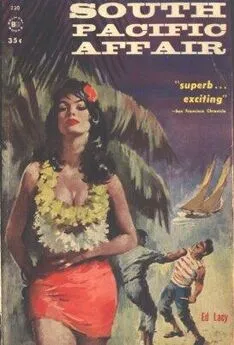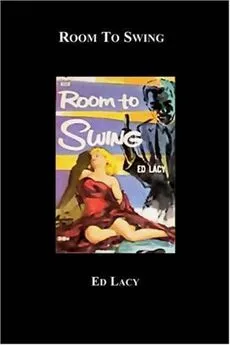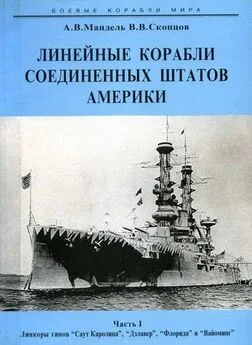Ed Lacy - South Pacific Affair
- Название:South Pacific Affair
- Автор:
- Жанр:
- Издательство:неизвестно
- Год:неизвестен
- ISBN:нет данных
- Рейтинг:
- Избранное:Добавить в избранное
-
Отзывы:
-
Ваша оценка:
Ed Lacy - South Pacific Affair краткое содержание
South Pacific Affair - читать онлайн бесплатно полную версию (весь текст целиком)
Интервал:
Закладка:
Cumber said softly, “We have only fish and fruits—and nuts. The wedding emptied the store and of course there hasn't been a trading vessel since then.”
I looked at Eddie and he shook his head. “Every can of food on the Hooker has been sold days ago.”
I caught Ruita's eyes and we both smiled—admitting for the first time how tired we'd been of our nut and fish diet on the islet.
I went down to the boat, to change from my “good” clothes —now slightly mildewed and sun-bleached—to a pair of trunks. Eddie came along the dock, asked me to throw him a cigar. He said, “In the hot sun the stink is pure awful. Hope we-can get away before the copra really goes rotten. I'll take out my stuff later, so you and Ruita can use the cabin nights.”
We had supper in Titi's hut—of fish, nuts, and a kind of white starch so rubbery I could hardly chew it, much less swallow the damn stuff. Cigarettes were still plentiful, and we smoked and listened to the faint sounds of Titi's radio. Then Ruita and I walked down to the boat, like old married people, without either of us mentioning it. And nobody else mentioned it, either.
Exactly thirty-four days went by in peace and quiet—and I counted the days for I monitored the radio news each afternoon. Ruita and I lived aboard the Hooker, sharing our privacy only with the roaches and copra bugs. She even put curtains of old pareu cloth on the portholes to add the proper domestic touch. Each dawn we left the boat to escape the copra stink, and hung around the village and gossiped. Sometimes we took hand lines and went to the lagoon entrance, spread crushed hermit crabs on the surface to attract the fish, and would bring back a canoe full of big fish.
I carefully took the old man's outboard apart, working whenever I felt like it, always surrounded by a chattering and eager audience. None of the parts were broken and I carefully cleaned them, scraped the rust off, oiled everything. When I had it together again, the old duck wanted to use it at once, asked me for gasoline. We had a forty-gallon tank in the Hooker and while I could have spared a pint or so, I used all the oil I had cleaning the motor. I tried, without success, to explain to the old man that he needed lubricating oil in his gas, and that he must run the motor in a barrel of fresh water as soon as he removed it from his canoe. Although he didn't like the idea he agreed to wait till a trading schooner appeared and he could get oil.
I was not only the master mechanic of Forliga—I also repaired bicycles—but the center of great interest for another reason. Each day we gathered around Titi's faint radio to hear the latest news from Papeete. The smallpox had spread to another of the Cook Islands, and several mild cases had appeared on Mopelia, due to some Rarotonga islanders making a long canoe trip there and carrying the germs. The ban on travel still stood, and the radio announced the Rarotongans would be jailed—some day.
The Chief, as part of his duties, listened to the news and then reported it to others, but by the time it had spread around, it was so distorted it didn't make sense. For example, gossip on Forliga had it that the Rarotongans had already been shot, and since they were from a British Island, war was certain between France and England. To simplify matters, I began taking the news down in shorthand—which floored everybody, including Ruita and her mama. Nobody could understand how the “worm,” as they called my shorthand figures, could possibly have any meaning. Several times a day I would be stopped on the village street, and asked to “please read the worms.” I'd take out my little battered notebook and read the latest news on the smallpox.
Ruita was so impressed at this odd “language,” I sat up half of one night trying to tell her how it worked, what the job of a court reporter was like. This started us on a long discussion of crime, something the island mind couldn't conceive of. Why should a man have to steal food when there was so much in the sea and on the trees, and if he did, why punish him? He was hungry.
Early one morning there was much blowing of conch shells and children racing through the village shouting that a schooner was coming. Everybody trooped across to the sea side of the atoll and there, still a good many miles off, was a large schooner. She was too far away to see clearly and of course nobody had any glasses. Cumber swore he had a pair “someplace” and even sent two of his daughters to look for them, till his wife reminded him he had sold them to a schooner sailor months ago for cigarettes and a silver cocktail shaker.
Cumber said, “It is strange. The ban on travel still exists, yet here is a schooner. Maybe it is good. At least we will be able to buy flour and tinned foods.”
“Perhaps it is a ship from Australia and they know nothing of the ban,” Ruita suggested.
Eddie, who had his hands to his eyes and was staring hard, like an old tar, said, “Naw, why should a ship from Australia be making directly for this atoll? Have to pass the Austral Islands and they would be stopped there. That's an island schooner, all right. I've seen those lines before.”
“No island boat would dare violate the government ban,” Cumber said, the voice of authority.
After much talk and speculation, we all went back to the village for coffee—without milk or sugar—and then returned to watch the schooner. By this time she was closing in on the atoll and Eddie shouted, “Hell, that's the Shanghai!”
There wasn't any doubt; even I could see it was Buck's boat.
The Chief said, “He may not have a radio, is not aware of the ban.”
“He's got a receiving set, for sure,” I said. “And where could he have been the last half dozen weeks that he didn't hear the news? The Shanghai is never at sea more than a few days at a time.”
Cumber nodded. “That is true. He has undoubtedly been at the other atolls, with his divers. Well, I shall inform him he can not land here.”
Cumber went to his hut to put on a clean T-shirt, shoes, and a white drill jacket, signs of his authority. We stayed to watch the schooner. As she sailed nearer we could see sailing canoes piled on her deck and Eddie said, “I'll lay odds this is the same bunch of divers he signed on at PellaPella.”
“I don't see a soul moving on deck—this is a sick ship!” Nancy added.
“Cumber will stop him from landing,” Ruita said.
“I don't think so. That Swede will out-talk him. We have to make absolutely certain nobody lands from that ship.” The old lady was looking at me as she said this.
I told her, “I doubt if even Buck would ignore the Governor—Papeete can be rough when they want to.”
“You don't know these miserable old traders,” Nancy said. “Buck will count on the fact that in time, soon as the sickness is over, the islanders will forget about this, not bother to report him. And he's right, Cumber hates to make out reports. If he has sick divers, Buck will want to dump them on Forliga, go on, and then return here months later to pick up those who are still alive.”
“We don't know if there are sick people on the ship,” Titi put in. “I would certainly like a bag of flour and some rum.”
“No, we can't allow any of his goods to come ashore,” Nancy began. “One bug is all we need to start a—”
Eddie cut in. “We can all stop guessing. She's at the channel now. Pretty narrow for a schooner her size—on a windy day they'd pile her up.”
We hurried to the lagoon side in time to see the Shanghai breeze through the channel, less than a yard of free water on either side of her hull. She dropped anchor and Cumber, along with two elderly men, paddled out. We watched them being hailed from the deck by Buck and Teng: the Chief went up the rope ladder. The faces of many islanders appeared at the rails, all looking toward us. After what seemed hours, probably was fifteen minutes, Cumber climbed back down to his canoe and was paddled back to the coral quay. At the same time a work boat was lowered from the stern of the schooner.
Cumber told us, “Buck say he receive special permission for this one voyage from Papeete.”
“Are there any sick aboard?” Nancy asked.
“He show you the permission in writing?” Eddie put in.
The Chief looked unhappy; his dudes were both weighing him down and confusing him. He held up his hands for silence. “There are a few sick on the decks. As for the permission, I did not see it, but he assured me he had it from the Governor personally.”
“You made it plain he could not land here?” Nancy asked, her voice loud.
“No. He has permission. I can not refuse him. Also, some of the sick have relatives here.” Cumber looked around at the other islanders for support. “After all, one cannot be so hard as to turn away sick relations who—”
“Listen to me,” the old woman almost shouted, speaking carefully in the old island dialect. “We cannot be of help to the sick, we have no medicines here. Nor do we have water and food for an extra half a hundred people, and be assured they will not stop here for a few days but for many months. If a single sick person comes ashore, many of us will die. We can only help them by insisting the schooner takes them to Papeete at once!”
Cumber shook his head. “If he has permission, it is beyond my power to stop him from landing. Also what would our relatives think if—”
“Have you forgotten our dead of the last epidemic!” Nancy screamed. Ruita tugged at her arm, whispered in French, “Mama, you are making a scene.”
There was an uneasy feeling in the air. The islanders were afraid of any sickness, yet they couldn't be so harsh as to turn sick friends and relations away. Even Cumber muttered, “It is difficult to know what to do. We have some iodine and boxes of aspirin here, perhaps—”
“Iodine and aspirin!” Nancy yelled. “You are killing these people and ourselves! They must go to Papeete where there is real medicine! You must understand what this ship brings!”
Eddie said, “Nancy, there's a long boat coming in now.”
We had all been so busy watching the old lady no one had kept an eye on the ship. A boat was pulling toward the dock. I saw Buck and Teng, and at the oars was a powerfully built blonde young man wearing a pair of gaudy pink trunks.
Buck and Teng jumped ashore while the blonde man tied up the boat, rested on the oars. On closer inspection he looked a bit flabby around his gut, but he had wide shoulders and strong legs—and the flattened nose and rough face of a fighter.
Teng and Buck were dressed in clean pants and shirts and smiles: Buck's Andy Gump puss looked like a nutcracker when he came up with the selling smile.
Mr. Teng took out a handful of hard candies and started to give them to the kids.
Nancy grabbed his hand, but he threw the candies into the air and the kids caught them with cries of delight, started eating. Teng told the old lady, “I bring small gifts for the children. What is wrong in that?”
Nancy asked in Tahitian, “When did you get permission to sail? Certainly if you were in Papeete they would never have allowed you to sail with sick people aboard.”
“We got it on the radio,” Buck said, his deep voice giving his words a sound of truth. “We had no sick when we sailed from Papeete. In fact we have only a few cases now—nothing really bad. The bad cases were buried at sea. We tried landing at another island but were refused. Well, we're running low on fresh food—although we have much flour and rice and canned meats,” he added, watching the faces of the islanders. “So I wirelessed the governor and was instructed to put in here.”
Читать дальшеИнтервал:
Закладка:










